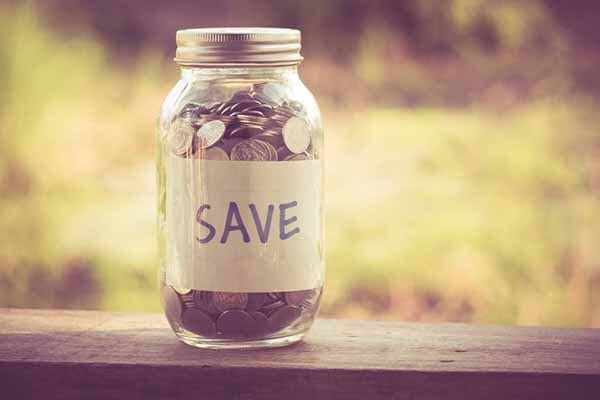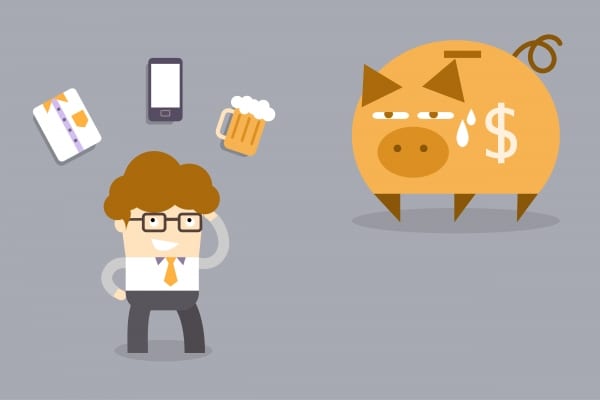There is a range of strategies you can employ to make saving money o. One of the major areas that can save you a lot in the long term is debt consolidation. There are also some other lifestyle choices you can make to improve your financial situation.
Many people think it is all too hard, but everything you do will help, even small changes can make a huge difference. We can all employ a range of measures that will prevent budget blowouts without sacrificing all the things you like doing.
If you are finding yourself on the roller coaster of no savings, bad debt management, poor (or no) budgeting and everything is a bit chaotic, Australian Lending Centre has some tips and tricks to get you out of bad debt employing activities such as debt consolidation, saving and feeling in control again.
First things first – Where Does Your Money Currently Go?
If you don’t yet have a budget, keep a financial diary for your pay period and track how you are spending your money. The Money Smart website offers a great money tracking app to make this easier. This will give you valuable insight into your habits and areas you can save.
- What are you spending your money on?
- How much is left over at the end of the pay period?
- What money needs to go out on payments and bills?
- Are there any areas of waste or unnecessary spending?
- Are there areas where you are going backwards and getting into arrears?
Planning and Budgeting – Where Will Your Money Go?
Once you have a record of what your current spending entails, get online to the Money Smart website and complete the budget tool. Be sure to include all your debts, payments, bills, and income. Mark payments and amounts in your calendar. Most bank online apps have the ability to schedule payments, so they come out when they are due, but if these are also in your calendar you won’t get any unexpected payments coming out. These regular payments can including things like:
- Mortgage or rent
- Car payments, car registration and insurance
- Household/health insurance
- Credit card payments
- Loan repayments
- Store card payments
- Afterpay/ZipPay (remember that defaulting on these can effect your credit score)
- Utilities such as gas and electricity (you may want to discuss bill smoothing with your provider – this is a regular payment over time rather than a massive and shocking bill each quarter)
- Internet and phone
Bad Debts? Talk to the Credit Provider
The bottom line is that companies want to be paid. They are always receptive if you explain your situation, especially if you have, or are, experiencing financial hardship. You may be able to negotiate with them to reduce or put a hold on payments until you get back on top of things. Of course, you still have the pay the money back, but a hiatus on payments can help in the short term. Some credit providers will allow you to reduce the final figure if you can pay the debt outright. If they offer this, it may be time for debt consolidation. If you are too overwhelmed by the phone calls and letters, then talk to us about negotiating on your behalf.
Next Steps – Take Control With Debt Consolidation
When loans and credit cards get beyond what you can cope with in terms of interest and late payments, it might be time to call in help from the experts. Companies like Australian Lending Centre can offer a solution for a bad credit debt consolidation loan. This is where you negotiate with lenders for a reduced payout figure and then apply for a single loan that will cover all your bills in one payment with a lower interest than general credit cards and late payment fees. Having one simple debt consolidation loan payment to go out eat pay period is going to be a lot easier than trying to remember everything. The sooner you simplify your payments, the sooner you will be in an easier financial situation.
Money-Saving Tips
Turn off the TV
Are services like Netflix, Foxtel, Stan, Hayu and the iTunes store getting beyond ridiculous? Try cutting out all but the most popular one, to cut back. Turning off the TV will also help cut back on power and expose you to less spend-inducing ads. You might also have app subscriptions that you don’t need. Although these are small they can add up in a month.
Stop Hoarding and Start Selling
If you have closets full of unwanted clothes, try selling them online. A good clean out also helps you to see what your wearable wardrobe looks like so you can plan your clothes shopping to maximise your shopping budget. Also if you buy anything make sure it goes with the other items in your wardrobe. Take advantage of sales, why pay retail when most clothes will go on sale towards the middle of the season.
Look for those habits that add up
You can cut back on your habits, such as drinking alcohol during the week, smoking (probably goes without saying but your health and budget will thank you), buying coffees, can all save a surprising amount as well as having general health benefits. Limiting your drinking to the weekend can save hundreds a month, depending on your drink of choice. That bottle of wine after work at $15 a night can really add up over the week. Similarly, a $4 coffee each day is $20 a week. Make coffee at home in a keep cup and save money and the environment.
Stop using your credit card
By switching to using your debit card or cash for purchases, you will be more aware of your spending habits. It will also prevent the slide into bad credit debt.
Be frugal at the supermarket
Most of the time, buying in bulk or larger sizes are cheaper over time, so check on the prices for the larger sizes. Don’t shop with kids. Pester power is a thing and can increase your spend at the checkout. Never shop when you are hungry. Buy less meat, which is expensive, and opt for more meat-free alternatives, such as tofu, beans, and pulses.
Eat Smarter
With a busy life, planning meals can be a real chore, but while using services like Uber Eats seems like a good alternative, you are actually paying $5 on top of takeaway prices and it really can add up at the end of the pay period. By shopping in bulk, cooking healthy meals and taking the leftovers to work for lunch, you can save quite a lot each day.
Are You Missing Out On Government Payments You Are Entitled To?
Lastly, make sure you check all your entitlements with regards to government payments. As a low-income earner, you may be eligible for some form of financial support if you aren’t already receiving a government benefit. When every dollar counts it’s worthwhile claiming all you can. To check on payments and entitlements, check out the Department of Human Services. Even a small additional payment may ease your financial burden. Living on a low income is hard, but these payments are designed to help.
Small Changes with Big Returns
Once you have a clearer picture about where your money goes, you make changes to your lifestyle and start on the path to greater financial control, the happier, healthier and less stressed overall you will be.If you need help with debt consolidation, please get in touch. We’d love to hear from you.
Note: This information is general, and doesn’t take into account your specific personal and financial circumstances.







